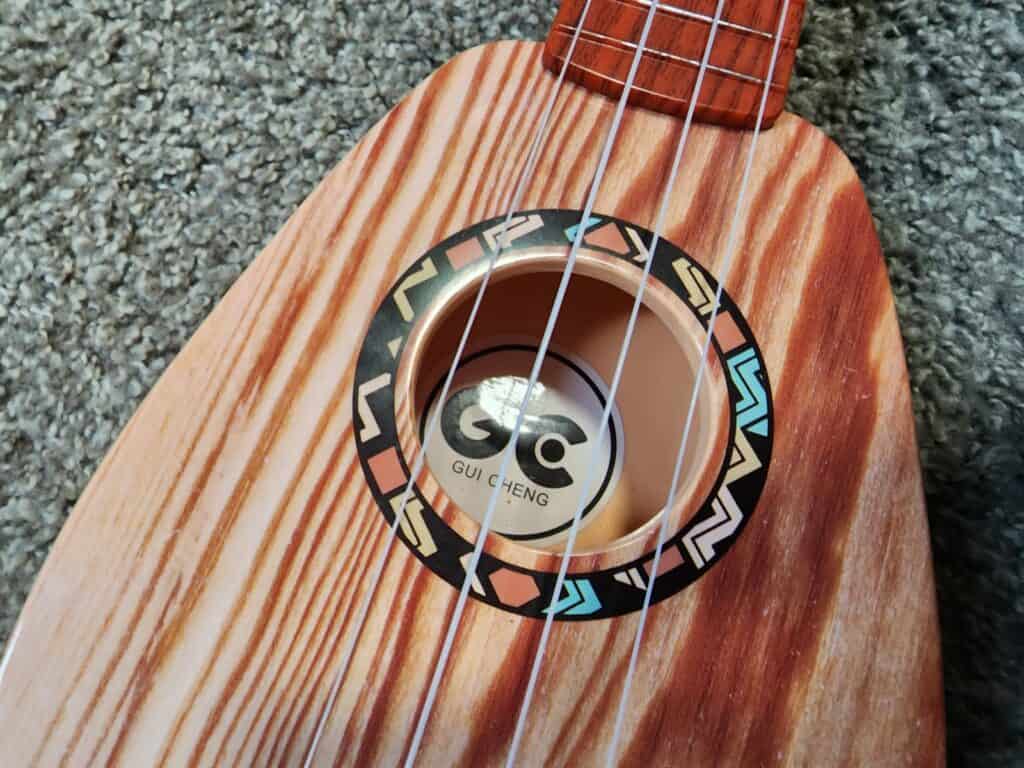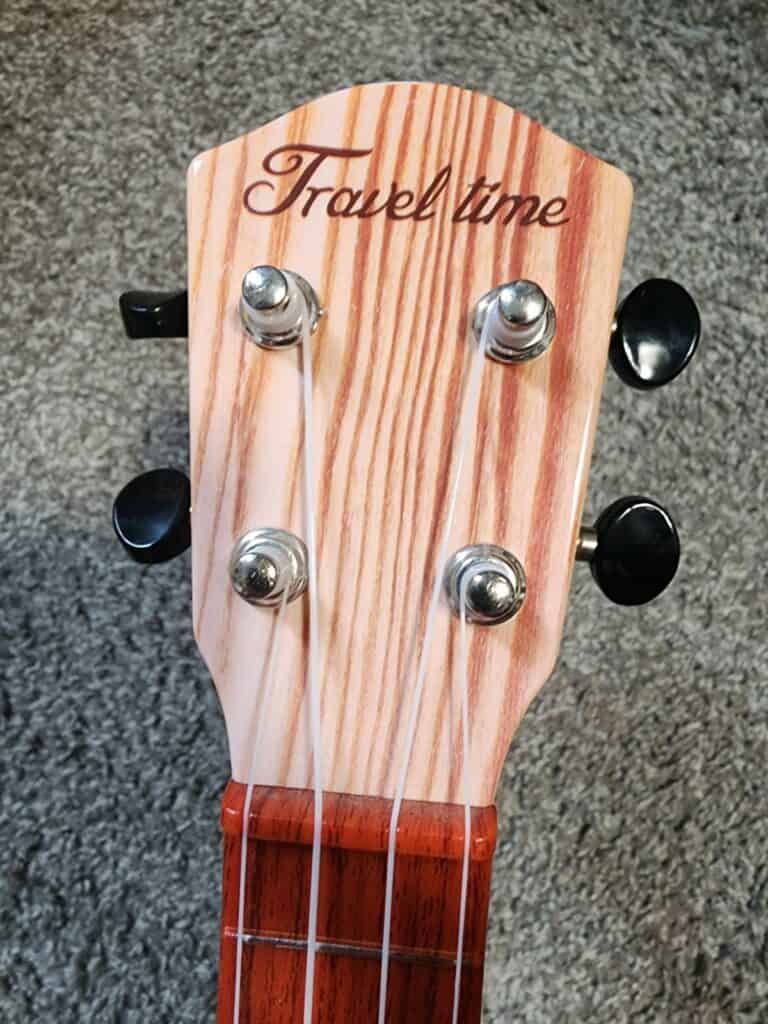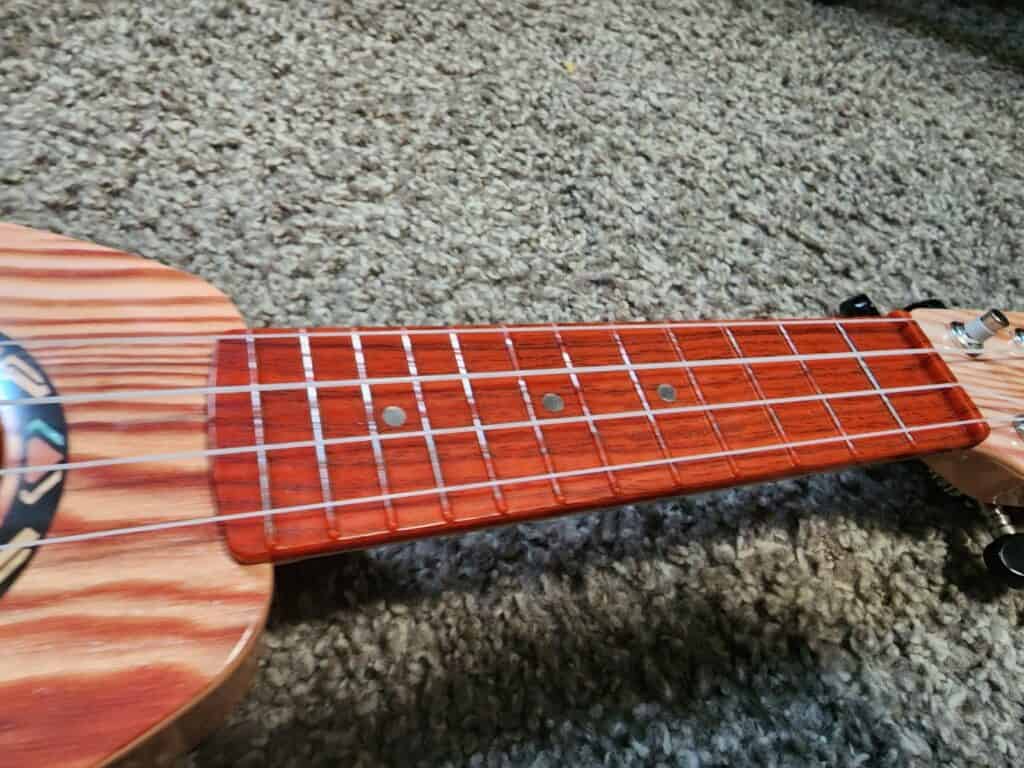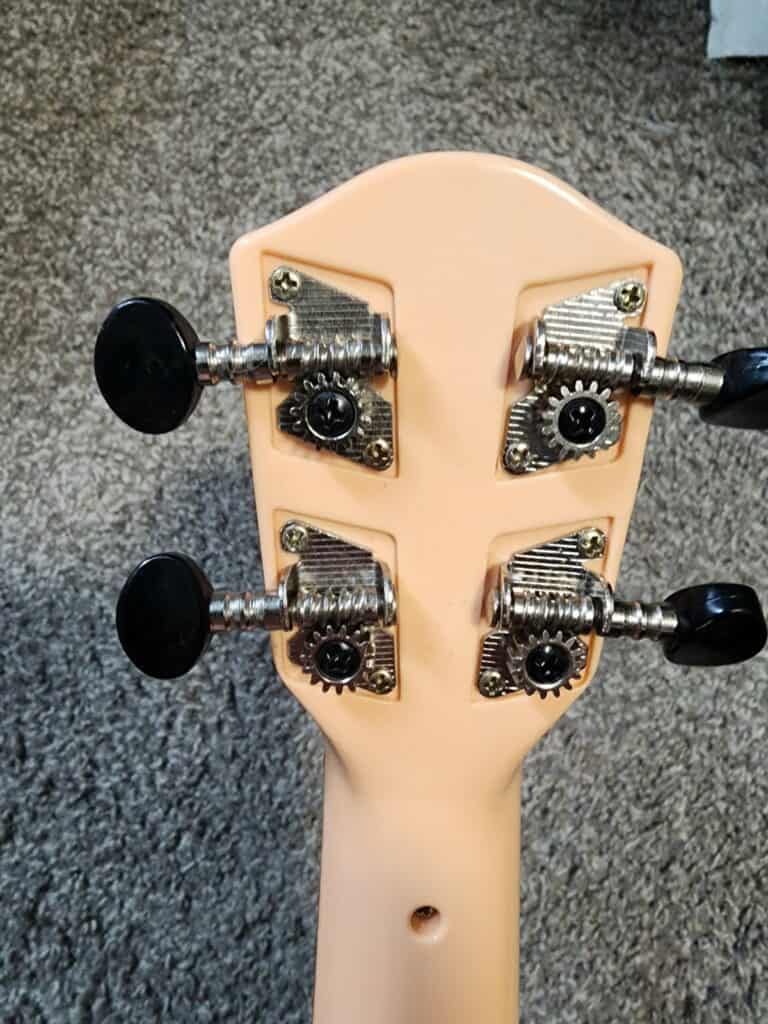Maybe like me you were gifted a plastic ukulele, mine came from my kid’s grandfather for one christmas, and it was for my youngest, he was probably two or three years old. I’ve now been able to have that ukulele kicking around the house and compared many hours of listening to tell you honestly.
Although plastic ukuleles can be perfect to use in limited circumstances, as a general rule wood ukuleles sound better, the parts last longer, and are overall easier to maintain than plastic ukuleles. That’s not to say that there are ukulele manufacturers that have made a decent plastic product to have on the market, and there are some limited, but perfect situations that an all plastic ukulele might outshine a wooden one.

Is A Plastic or Wood Ukulele Better?
Most people who play and enjoy music believe that a ukulele that is made of wood is inherently a better instrument, and I looked at dozens of people’s responses to this question and noticed some pretty consistent trends.
Nearly all people who I polled confirmed that they believed that a wood instrument will always be better, when you’re talking about how the way the music sounds.
A master ukulele craftsman uses different hardwoods in different parts of the ukulele’s body with the intent that the resonance from the wood harmonizes to make a gorgeous overall sound.
The front of the uke needs to be a tonewood that is strong enough to connect the strings of the uke to the body, and not warp or bend over time – although it will always need to live under constant stress. No one loosens their strings when they put their instrument down, right?

There have been many types of woods used in the face of ukuleles, I’ve seen koa, mahogany, and spruce for sure. Those are all light and flexible woods but they’re strong. They can resonate a great sound into the body of the uke as well as withstand that strong pressure.
The sides and back of the uke are also considered so that they can do the same type of job. The whole instrument needs to vibrate under the pressure of the strings, and the woods resonate out the tone that is going to be almost 100% exclusive to that single instrument that you hold in your hand.
A plastic uke is made out of melted plastic beads, poured into a mold in a few different pieces, and manufactured at a massive scale. The plastic pieces are glued or welded onto eachother, and a factory is able to make loads and loads of them, driving the price down and making music available to the masses.
As I mentioned, I think there is a perfect situation where a plastic ukulele is the exact instrument that you want to bring. If you’re playing in a wet enviroment, bring a plastic uke!
Maybe you’re planning a boating trip, a hike, or a camping trip. There are times when you would want to keep your “good” instrument home and safe- that’s the perfect time to have a plastic uke available to pull out and not worry about getting wet.
I specifically keep this plastic uke around because we have babies that come into our home, and they like to grab and play with things like a ukulele. I keep this one hanging down low near the front door, and it doesn’t matter if it gets drooled on, dropped or even stepped on. It wouldn’t hurt any of our feelings to get rid of this uke, but it’s really nice to keep around.
The molecules used in the manufacturing process of this indestructible little uke just don’t bounce off of eachother the same way that a carefully selected tonewood, or even a well crafted laminate do. The sound from the wood always sounds superior to me so I always prefer to play it.
I have seen many novelty ukes that are plastic, and I’ve seen some people say that the plastic uke they’ve picked up sounds just fine – but I don’t think they really can compare.
Can Plastic Ukuleles Work In A Pinch?

Some people might have a burning desire to strum away at the uke, write their true feelings down and begin their rockstar voyage, and they might be faced with the choice that their only opportunity to turn their dreams into reality is to start with a plastic uke that was gifted to them.
Any student who shows a genuine interest in learning but only has access to a plastic ukulele they must make do with what’s available. If it’s the only choice, a plastic ukulele works as the best way to continue to fuel the desire to create and learn. A good quality laminate soprano ukulele does not cost much more than the plastic manufactured inexpensive versions on many retail websites.
It would be a good goal for the student and their family to work to finding a way to purchase or rent an instrument that will sound good and be durable as well as respected as anyone begins to learn the uke.
If you’re an older learner, it would probably be important to purchase a decent laminate ukulele with some tonewoods from a reputable ukulele manufacturer. It doesn’t take much money to buy a decent uke that you can get by using for many years, some for as little as $100.
Will A Plastic Ukulele Stay In Tune?
One of the biggest problems that I’ve had with this little kick around plastic ukulele is that it is very difficult to keep in tune. It’s actually pretty easy to get into tune, the strings are pretty short so they stretch fast.
It does take some practice, but you can tune a plastic ukulele the same way as a traditional ukulele, by turning the pegs in the plastic headstock to loosen or tighten the string, until it reaches the correct pitch. The gear tuners and the string quality can cause some challenges when tuning an inexpensive plastic ukulele.
Although it’s fairly easy to tune, and will stay in tune for a short period of time, the plastic ukulele doesn’t seem to stay in tune for very long.
There are probably several reasons this is the case, but I would count on the quality of the tuners and strings being one of the strongest reasons.

Also, because this uke is accessible to toddlers, the tuning pegs are often tuned far outside a standard range for a uke that has had time for it’s strings to break in.
I can’t believe the stretching and loosening of the nylon string wouldn’t cause a shortened life span – I’m sure it must. Also, I’m sure the string has been overtightened by normal specifications by an eager kid, which can’t help it stay in tune long term.
I imagine that if I put a new set of strings on this uke it might play just as well as my laminate Kala Soprano, but I’ll never know. Let me know about your experience with a plastic uke by sending me a message or connecting on youtube!
